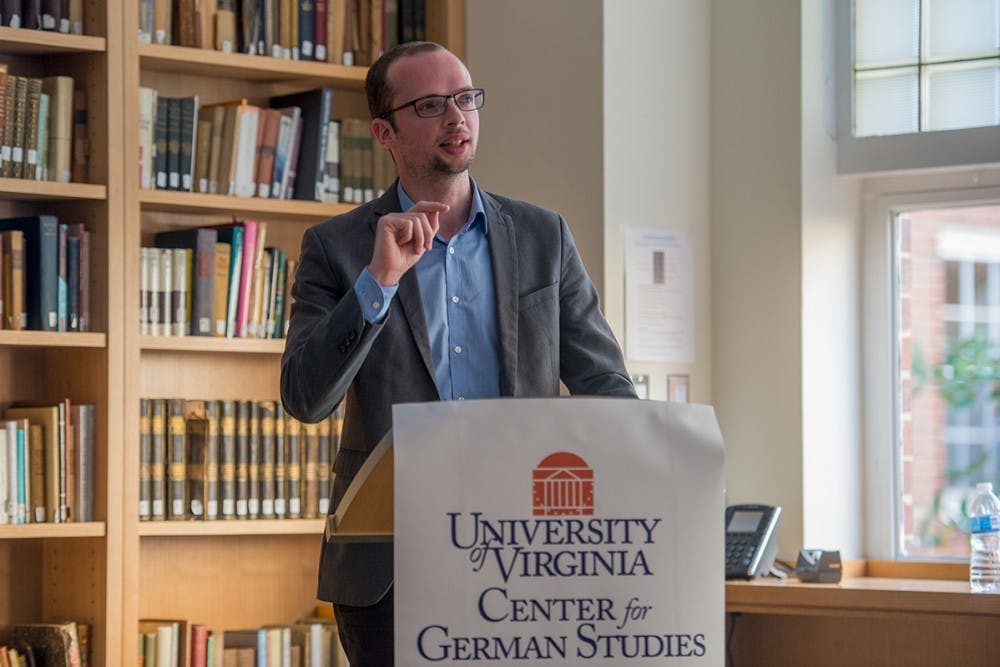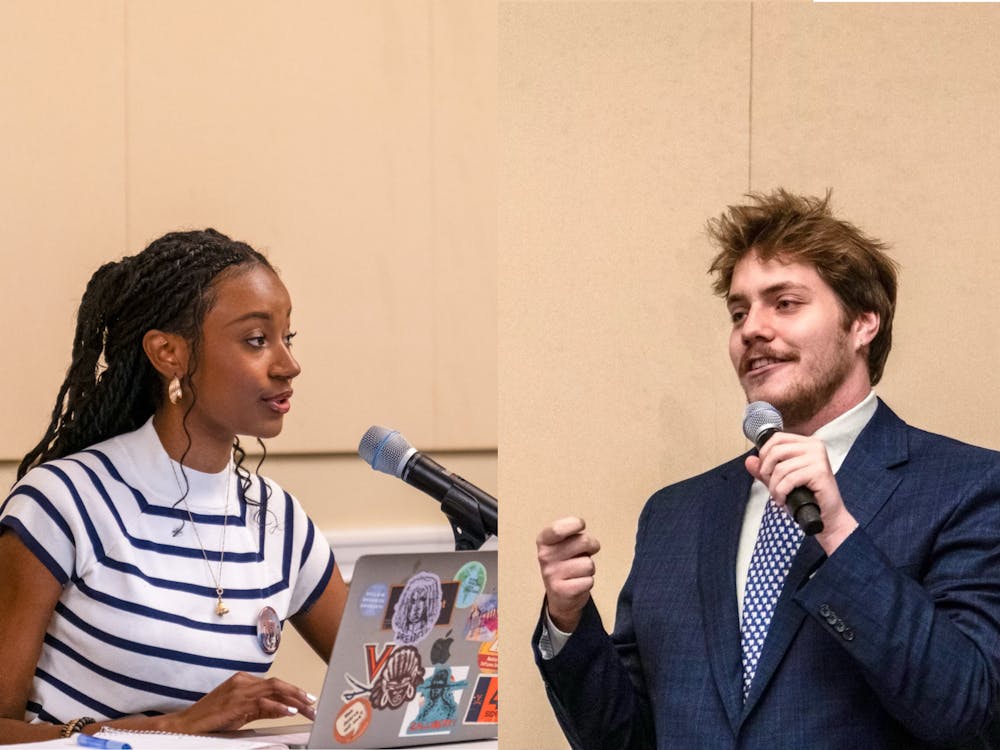Armin Langer — a German author and founder of the Salaam-Shalom Initiative, an activist organization seeking to facilitate coexistence between people of Muslim and Jewish faiths — spoke about cultural tolerance Thursday evening in New Cabell Hall. Langer’s lecture served as the opening for the Sanctuary and Belonging Initiative, hosted by the University’s Center for German Studies.
Langer discussed the challenges facing ethnic and religious minorities in Western European nations. Langer began the talk by recounting his own difficulties throughout his childhood in Germany, Switzerland and Hungary. As a man of Jewish descent, Langer recounted his struggle to identify with Christian society.
“I guess I’ve always been interested in the question who belongs to a country because I never belong to any of them,” Langer said.
Having moved multiple times as a child, Langer faced both government discrimination and prejudice. For much of the 1990s in Germany, citizens could not obtain a German passport if they did not have German blood. Langer, coming from a Jewish-Hungarian family, was not eligible for a German passport for three years after he was born.
But even in the nation of his ancestors, Langer continued to experience discrimination.
“If you have a foreign name, you were assumed to be a Jew,” Langer said.
Langer also cited discrimination against Muslims in Western Europe. A Muslim woman, he explained, was legally denied a public office position in a small German town because she wore a hijab.
“You would let this woman work as a cleaning lady, but not a public officer?” Langer said.
In the past 30 years, some European lawmakers have pushed for the prohibition of religious symbols in many public areas to increase religious inclusion. Langer said that these restrictions have been instituted by white officials and are both counterproductive and hypocritical.
“This is not an issue that should be sold by the white majority,” Langer said. “These women are constantly told they do not belong in the country.”
Langer argued that these initiatives only restrict non-Christian minorities in their religious expression and are not equally applied to Christians, who make up the vast majority of individuals in Western European nations.
Langer said there are countless references to Christianity in Western nations. He specifically cited the German constitution, which begins with a reference to God, and European nations’ flags as exemplifying a Christian stronghold in Western cultures. The flags of countries such as Ireland, Scotland and the Scandinavian nations, Langer argued, are all overt references to Christianity.
However, Langer assured the audience that he is not advocating for a secular society.
“My purpose here is not to say there should not be any religious symbols in the public sphere,” Langer said. “I don’t promote erasing history.”
The Sanctuary and Belonging Initiative continued into Friday with multiple events, including lectures and discussion panels.






